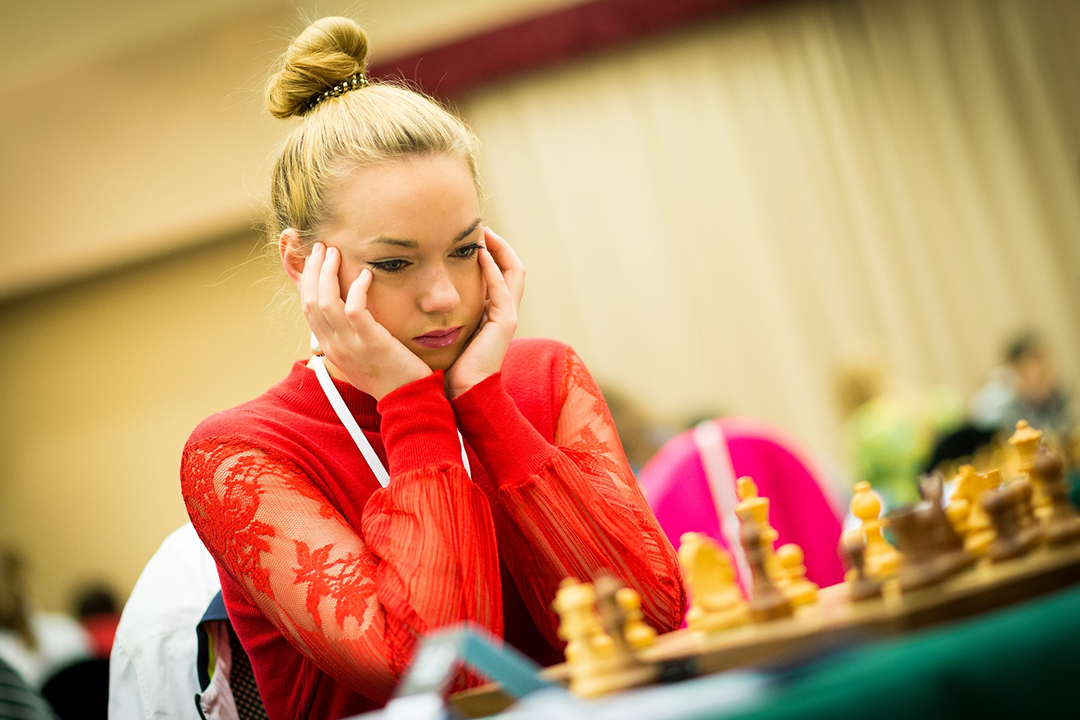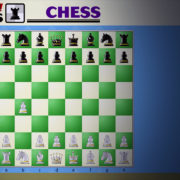If you’ve worked hard at your fundamental chess skills, and feel the basic foundations are firmly installed, then it might be time to start thinking of yourself as an intermediate player.
You’re developing your own style, deciding whether you’re an offensive or defensive player, and establishing which memory system you can rely on. Building consistency, understanding strategic development, and gaining familiarity with the concept of transposition are all skills that once absorbed will carry you forward towards becoming an expert-level chess player.
Although books can never replace your online chess coach, they can provide a useful resource and bring another perspective to the board.
1. Logical Chess: Move By Move: Every Move Explained New Algebraic Edition by Irving Chernev
This pleasingly entertaining book by Chernov uses detailed breakdowns of over 33 complete games, examining each move step-by-step, in order to give real insight into how to inject power and efficiency into your gameplay.
Starting by analyzing the Kingside Attack from over 15 highly advanced games, Chernov goes on to detail the famous Queen’s Pawn Opening. The last section concerns the thinking behind the way Grandmasters have played their winning games – why they chose those combinations of strategic moves? What tactics were employed in order to come out on top?
For technical content alone this book should appear on any chess player’s bookshelf, but couple that with the approachable style and interesting anecdotes, and it’s a must-have.
2. Chess: 5334 Problems, Combinations and Games by László Polgár
Coming highly recommended by chess experts, Polgár’s seminal work on the subject contains tightly examined scenarios, the majority taken from genuine matches. Featured problems include checkmate in one move – over 300 such challenges, nearly 3,500 two move mates, and 700+ checkmates in three. With over 5,000 unique situations, the book is well organized, allowing readers to quickly locate exactly what they need, while the numerous illustrations provide extra guidance and clarity. Miniature games, endgames, and tournament combinations are also included.
Polgár’s approach concentrates on the way you see the board, systematically training your eyes to highlight the recognizable patterns, while your memory restores the associated file and the solution becomes quickly apparent. He recommends just an hour a day to establish ‘the eye’ and take your game to the next level.
3. Complete Book of Chess Strategy by Jeremy Silman
Silman’s Complete Book of Chess Strategy is presented in a dictionary-style format, making it simple to locate any concept. Detailed descriptions are given for the wide range of tactics and strategic moves, covering openings, middle, endgames, and more, while clear, well-written examples highlight any issues you may encounter in real-life usage.
Whether you prefer to digest this book from cover to cover or dip in and out at will, Silman has produced a handy manual, crammed with invaluable information designed to improve your knowledge, both theoretical and practical.
4. 600 Modern Chess Puzzles by Martyn Kravtsiv
As this collection of puzzles is part of a series of 9 chess books, you’ll never be short of a challenge. Not only is each puzzle written in a clear and concise way, each is designed to improve your tactical vision. Kravtsiv, quite correctly states that losing a position is often down to missing a key opportunity, and by taking your tactical vision to the next level, you can avoid such slip-ups. That this advancement feels organic and natural is down to Kravtsiv’s knack for identifying the maximum benefit and instructive value in each challenge he features.
Covering every correct and incorrect answer, along with detailed explanations, illustrative diagrams, and a series of ‘no hint’ tests, this is an enjoyable book that keeps your mind active with a new puzzle every day.
5. Chess Tactics – Volume 2: Sharpen your tactical ability daily on your way to mastery (Daily Chess Training) by Carsten Hansen
Designed to provide daily chess exercises, Hansen’s easy-to-understand book offers a practical way to train your mind. Ranging from the relatively simple to excessively hard, the puzzles contained in Chess Tactics bring value to your extracurricular chess practice. Supporting your regular coaching sessions, you’ll be surprised how much your calculation skills will improve. By sharpening tactical perception, you’ll be instinctively strengthening your game ready to take on tougher opponents.
By giving hints for some of the puzzles, Hansen has made this interesting and accessible for novice players; however, with over 400 to choose from, there are numerous challenges that even the strongest will struggle with.



